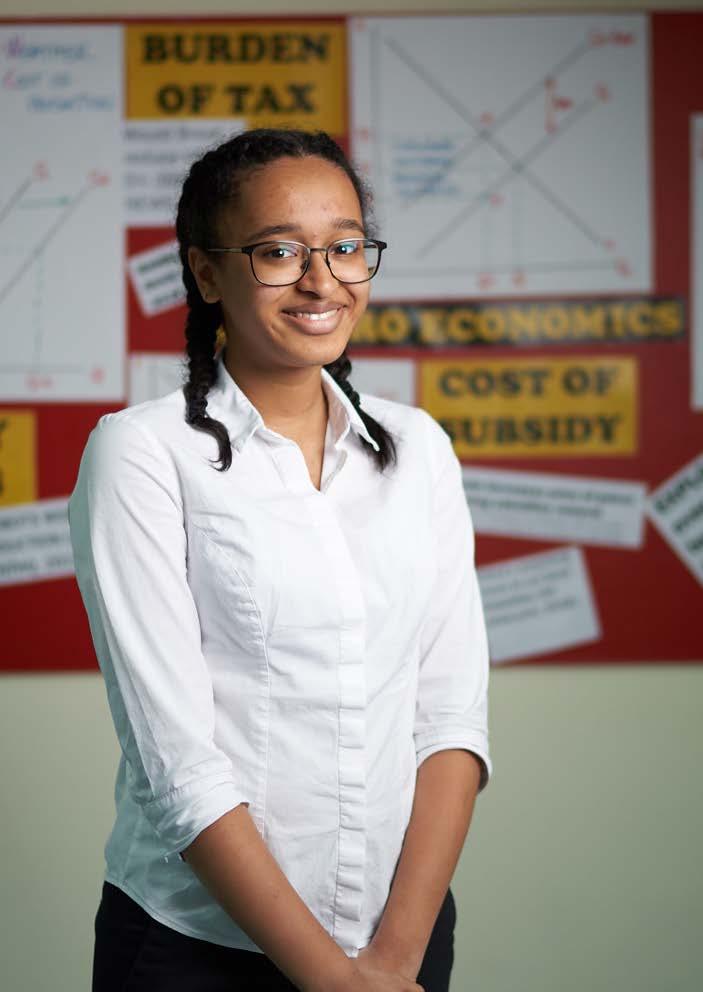
2 minute read
Economics (IB
IB
Economics
Advertisement
The course emphasizes the economic theories of microeconomics, which deal with economic variables affecting individuals, firms and markets, and the economic theories of macroeconomics, which deal with economic variables affecting countries, governments and societies.
These economic theories are not to be studied in a vacuum—rather, they are to be applied to real-world issues. Prominent among these issues are fluctuations in economic activity, international trade, economic development and environmental sustainability.
COURSE AIMS • To develop an understanding of microeconomic and macroeconomic theories and concepts and their realworld application • To develop an appreciation of the impact on individuals and societies of economic interactions between nations • To develop an awareness of development issues facing nations as they undergo the process of change • To promote an understanding of how economic theory can be applied in an international context. Economics is not a discrete subject; it incorporates elements of history, geography, psychology and many other related fields of study • To learn how to be reflective and critique own performance to develop a well balanced approach to learning
ADVICE Students suited to this course will: • Have an interest in economic affairs and a desire to explore why and how the study of economics contributes to an understanding of the modern world • Are inquirers and enjoy seeking out information from a variety of sources including web and print media
135 IB
• Enjoy studying complex economic, political and social issues • Enjoy analysing the impact of potential decisions and make reasoned and often difficult decisions • Like to communicate their views through a variety of media and will be expected to confidently present information to small and large groups • Are confident in using data and value judgements to make calculated economic and business risks and caringly look at how different cultural viewpoints could alter those decisions • Are open-mind and see how a principled approach to economic thinking can be used to make improvements for all in a global context. • Wish to pursue a career as an accountant, business manager, politician, or in an economics-related profession. If you enjoy studying a subject that affects your own everyday life, want to keep your options open - Economics can be combined with a wide range of science, social science and humanities subjects. • Have an active interest in the financial world and are prepared to read financial newspapers, as well as Economics periodicals such as Economic Review in order to supplement their knowledge and understanding.
IB 137




